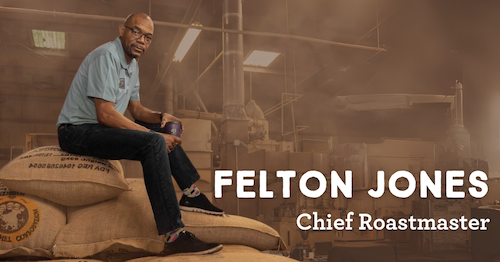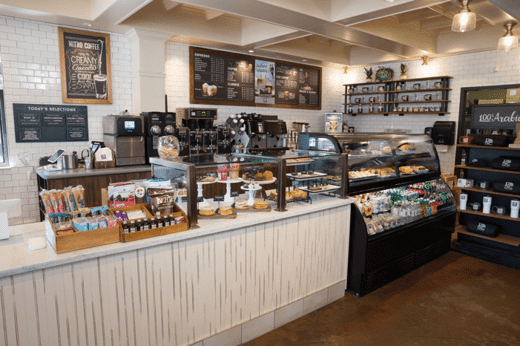
As PJ’s Coffee’s Roastmaster for more than 30 years, I’ve seen firsthand how global trade impacts what ends up in your cup. Recently, new U.S. tariffs on Brazilian imports have shaken up the $473 billion coffee industry. Brazil supplies about one-third of America’s coffee, so the ripple effects are significant, affecting roasters, franchise systems, and ultimately the price of your daily cup.
Let’s break down what’s happening, what it means for coffee franchises, and how the industry is adapting.
Where Coffee Franchises Source Their Coffee Beans
Most U.S. coffee shops, whether independently owned or franchised, don’t buy directly from coffee bean farms. Instead, they work with importers who have long-standing relationships with exporters around the world. For example, PJ’s Coffee sources from multiple countries, including Brazil, Honduras, and Colombia, which make up the backbone of our sourcing.
Large coffee franchises tend to narrow their sourcing to a core group of countries and farms to ensure consistency at scale. Smaller specialty roasters, by contrast, may rotate origins more frequently to feature unique flavors. However, across the board, quality standards drive sourcing decisions more than geography does.
Why the Tariffs Matter
The new Brazilian tariffs place a 50% surcharge on the country’s coffee when it reaches U.S. customs. That kind of increase makes Brazilian coffee beans virtually unaffordable for American roasters—at least for now.
This matters for two reasons:
- Scale of Impact: Brazil supplies one-third of U.S. coffee imports, so removing that source of beans puts enormous pressure on the rest of the suppliers to keep up with existing demand.
- Limited Alternatives: Unlike beef or orange juice, coffee can’t be produced domestically at scale. That means U.S. roasters must source their beans from other countries, driving up regional demand and prices.
No one knows how long these tariffs will last. Over the course of my career, coffee price points in the U.S. have always been tied to Brazil, as it’s the world’s largest supplier and the benchmark for global coffee trade. If Brazilian beans stay out of the U.S. market, another origin may step in to set the global price, which could fundamentally shift the industry.
For coffee franchises, this creates both cost pressure and sourcing challenges.
What This Means for Coffee Shop Franchises
The good news is that roasters across the industry are skilled at adapting. Coffee beans are an agricultural product, and flexibility has always been part of my job. For franchisees, the biggest takeaway is that a strong system can weather storms like this. At PJ’s Coffee, we’re:
- Protecting margins by managing supplier relationships carefully.
- Maintaining consistency by testing different beans and fine-tuning the blends so our guests won’t notice a difference in quality.
- Planning long-term by evaluating scalable sourcing strategies that keep costs stable across all locations.
Franchise owners benefit from this forethought and stability; we take the burden of navigating global trade complexities so they can focus on running their coffee shops.
What This Means for Coffee Lovers
While tariffs may sound like dry trade policy, their effects hit close to home—few products touch daily life quite like coffee. For the average guest at a coffee shop franchise, the impact may feel surprisingly small in the short term. Even a 10% tariff on non-Brazilian coffee usually equals just a few cents more per cup. That said, if demand for alternative origins spikes, prices could increase further over time.
It’s important for coffee drinkers to understand that roasters and franchises are working tirelessly behind the scenes to protect both quality and affordability. The impact of this coffee tariff will be lasting. Even after the tariffs are lifted, there may be a trickle effect with pricing.
Takeaway for Franchise Owners and Prospects
The coffee industry is resilient, but global trade shifts like this highlight the importance of joining a franchise with strong sourcing networks, experienced roasting teams, and the ability to adapt quickly. A well-structured franchise can shield owners from much of the turbulence, handling supplier negotiations and quality control so operators can focus on running their cafés at the local level.
In an industry as beloved and essential as coffee, that kind of stability is worth its weight in beans.
Ready to explore franchising with PJ’s Coffee? Fill out our inquiry form today.




.2511120756530.jpg)

